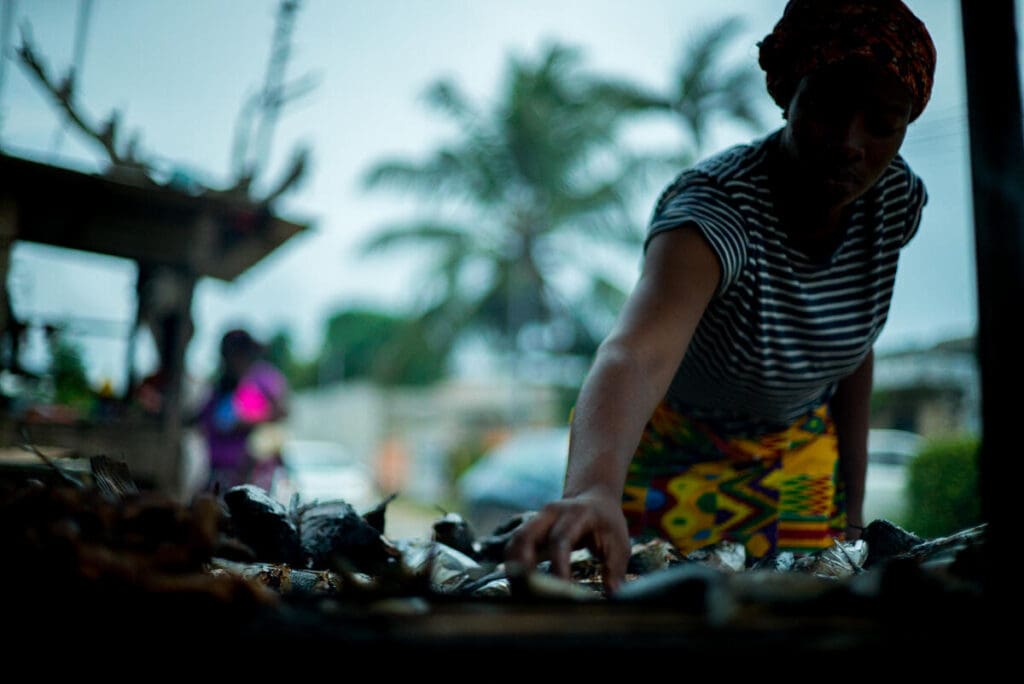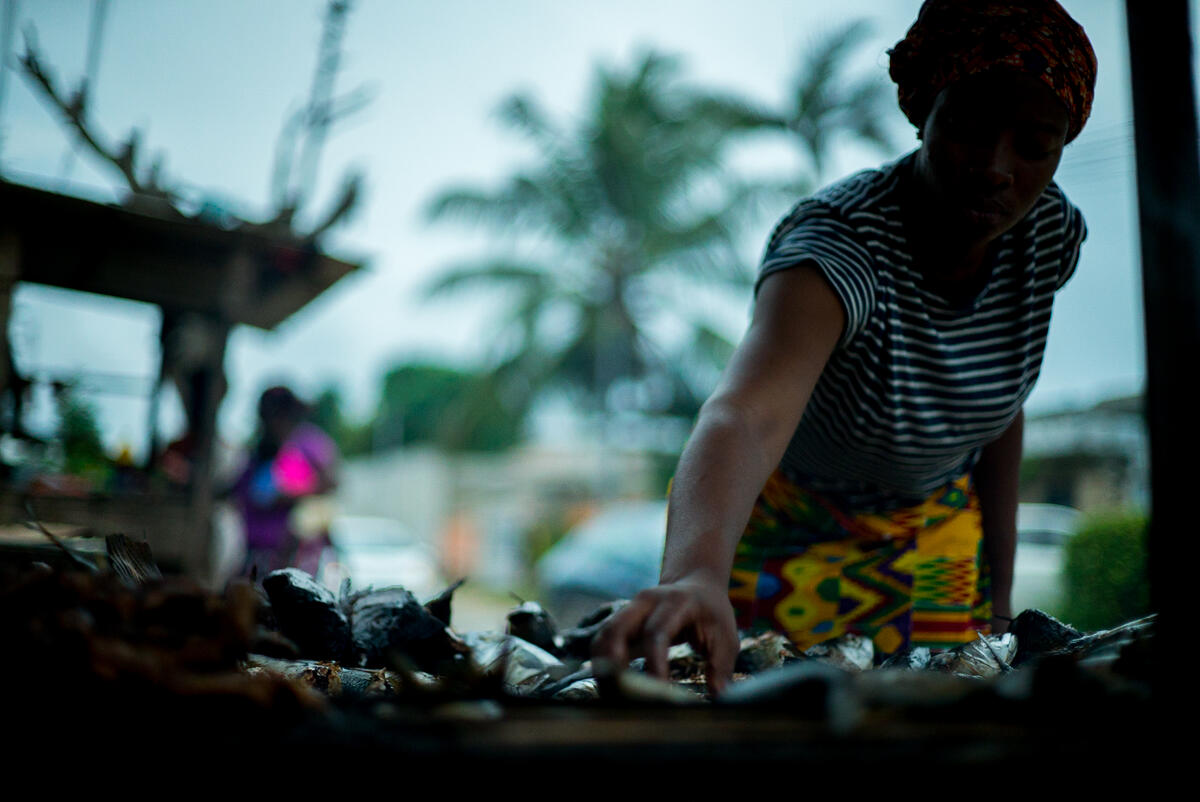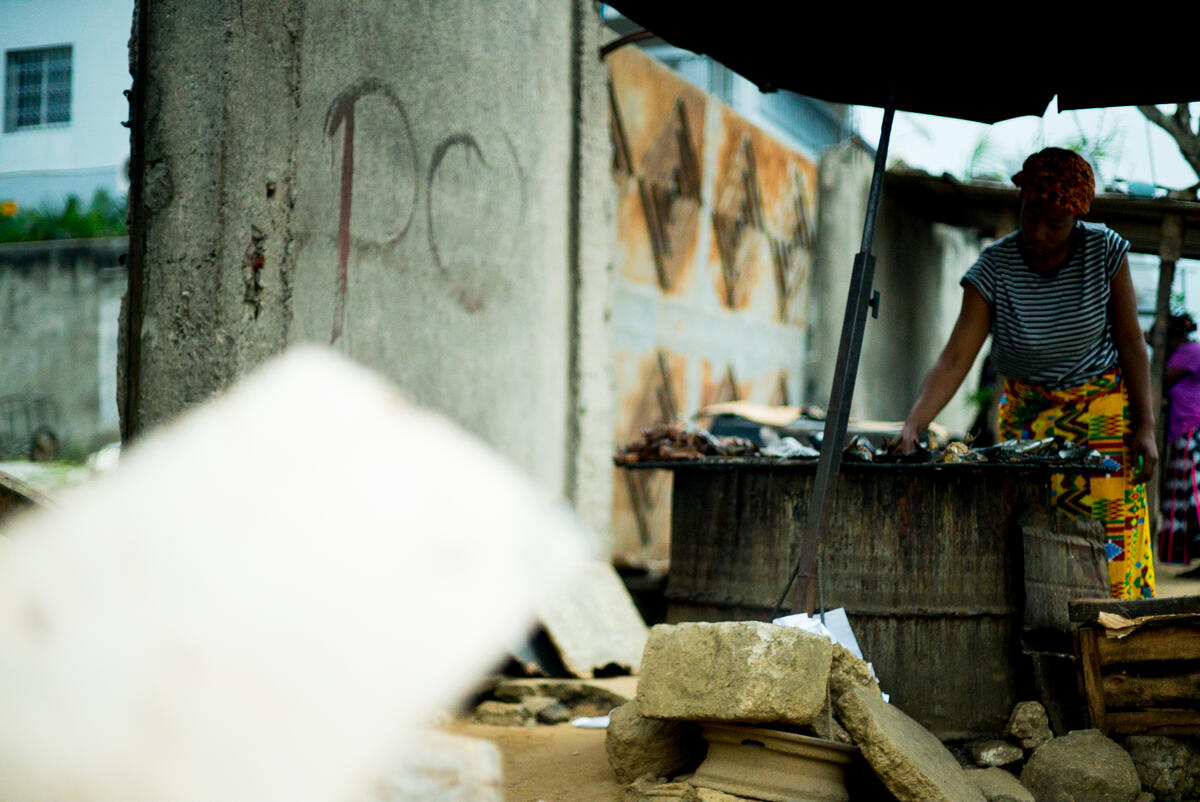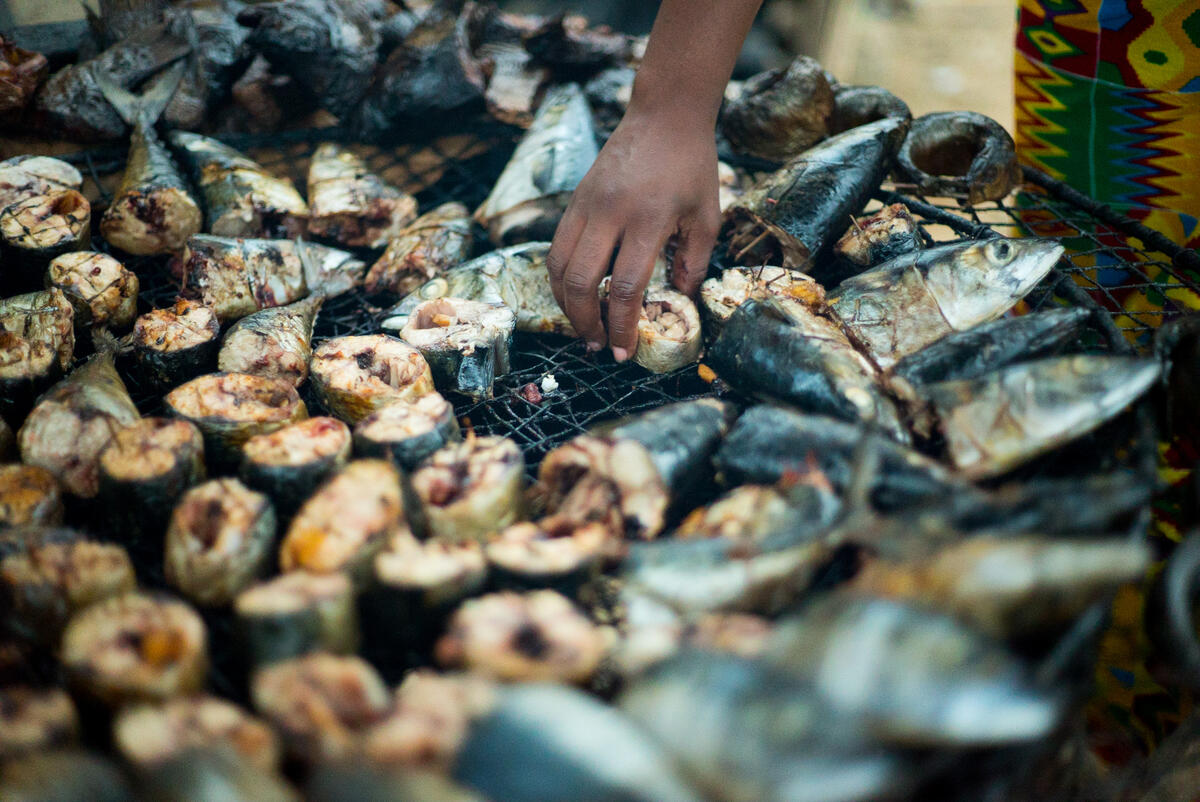World AIDS Day: Cash Grants Help People Living With HIV in Côte D’Ivoire Overcome Stigma

In Côte d’Ivoire, the United Nations World Food Programme (WFP) works closely with local partners to provide people living with HIV with critical food and nutrition assistance.
“Smoked fish, you need to know how to make it,” says Salome, one of one of 430,000 HIV positive people in Côte d’Ivoire. Fish is a popular food choice in the country and Salome relies on selling it to make end’s meet.

The pandemic made it even harder for people in vulnerable situations to access nutritious food.
Under the socio-economic pressures of COVID-19, Salome’s business shrank and she struggled to afford the nutritious food she needs to take the medicine for her HIV treatment.
“I usually get by with my smoked fish stand. But when COVID-19 arrived, it brought down my business. People walk past, but purchase nothing,” says Salome.
For those living with HIV, lack of access to food or good nutrition could be a barrier to HIV-related treatments. Hunger is also associated with increased HIV transmission and higher mortality rates among new Antiretroviral therapy (ART) clients.

Antiretroviral therapy (ART), as well as good nutrition, is essential to people living with HIV and reaching the goal of eradicating AIDS as a public health threat by 2030.
To support people living with HIV during COVID-19, the U.N. World Food Programme piloted a cash-transfer program in Cote D’Ivoire together with the United Nations Joint Program on HIV & AIDS (UNAIDS). With UNAIDS and local partners, the U.N. World Food Programme works to provide food, nutrition assistance and social protection services for people living with HIV.
Since 2020, the U.N. World Food Programme has provided support to over 1,000 people in Abidjan, Cote D’Ivoire who have been impacted by the economic effects of COVID-19.

“Thanks to the money, I was able to feed myself, take my medicines, and pay for my daughter’s school fee,” says Salome.
The U.N. World Food Programme’s cash-transfers project has been piloted in several countries including Cote D’Ivoire and Chad to improve nutritional outcomes among hungry and malnourished people living with HIV.
“I have faith,” says Salome. “Like we say here in Abidjan, we must always look forward.”
This story originally appeared on WFP’s Stories on December 1, 2021. Names used in this story are pseudonyms to protect the identities of the actual contributors.




